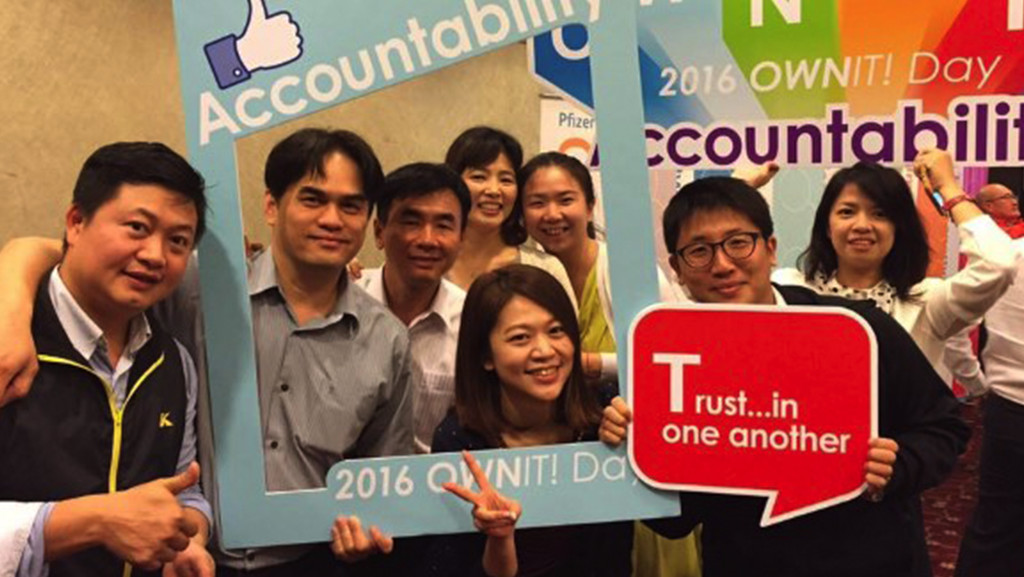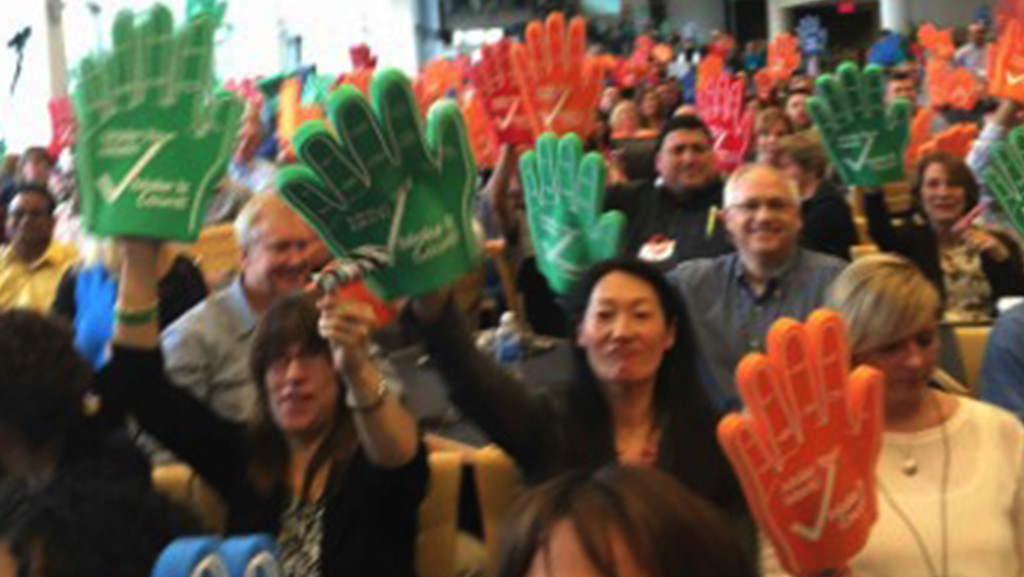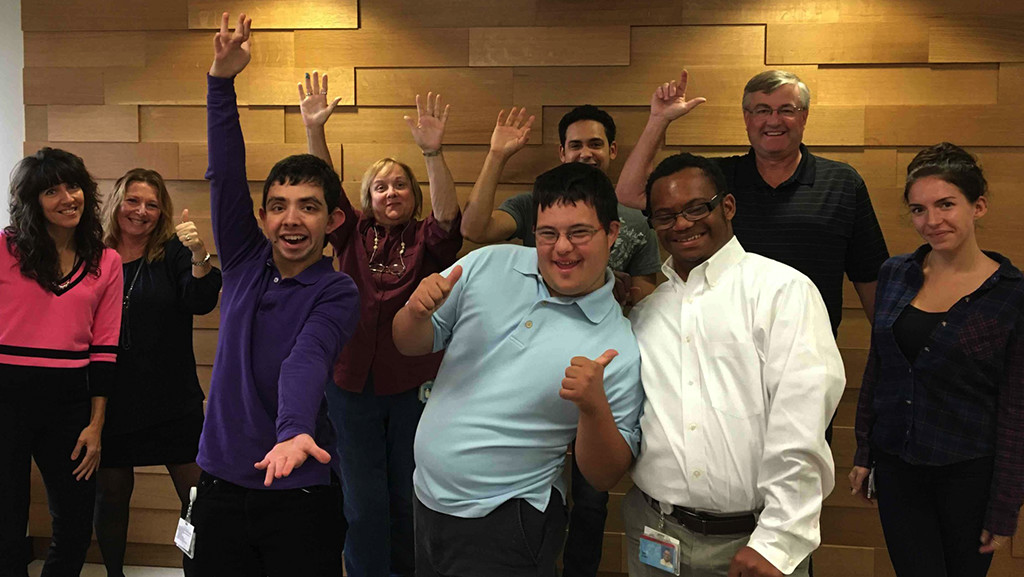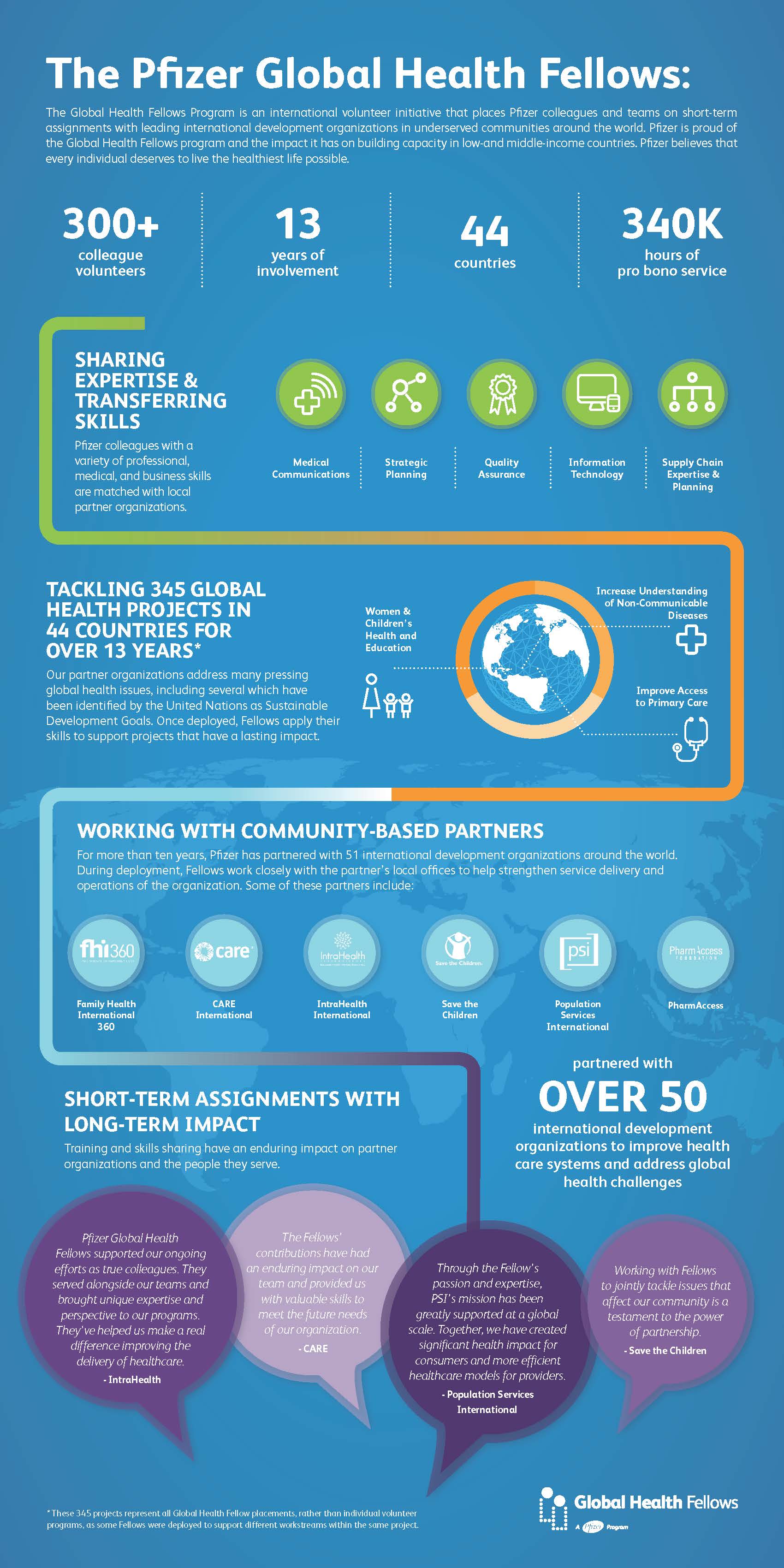Our People
Culture
Pfizer's OWNIT! culture empowers all colleagues to be accountable, to foster innovative thinking, to be ready for change and to build collaborative relationships that drive positive business results.
We believe our OWNIT! culture also positions Pfizer for long-term success and ensures the growth and development of colleagues.
Our OWNIT! culture fosters colleagues’ accountability to deliver on their commitments that ultimately have a deep and meaningful impact on the lives of the patients that we serve. Our colleagues are encouraged to think innovatively and to leverage their collective experience on behalf of patients.
Pamela Puryear, Ph.D.
Senior Vice President and Chief Talent Officer, Pfizer

Global OWNIT! Day: Celebrating Our Colleagues and Our Culture
Pfizer held its fourth annual global OWNIT! Day in April 2016. Throughout the company and around the world, colleagues took time to reflect and celebrate Pfizer's OWNIT! culture, with a core focus on accountability.
Fostering a Culture of Diversity and Inclusion
Pfizer’s Colleague Resource Groups (CRGs) are open to all colleagues and help drive diversity and inclusion (D&I) throughout our business.
CRGs sponsor various activities, including local health fairs in underserved communities, meaningful work opportunities for high school students with developmental and intellectual disabilities, helping veterans find employment, advocacy on behalf of the LGBT community, and furthering education.
Our CRG groups and membership continue to grow:
- 94 CRGs globally focused on providing professional networking and developmental opportunities to members and driving business results on behalf of patients
- 10,885 Pfizer colleague members
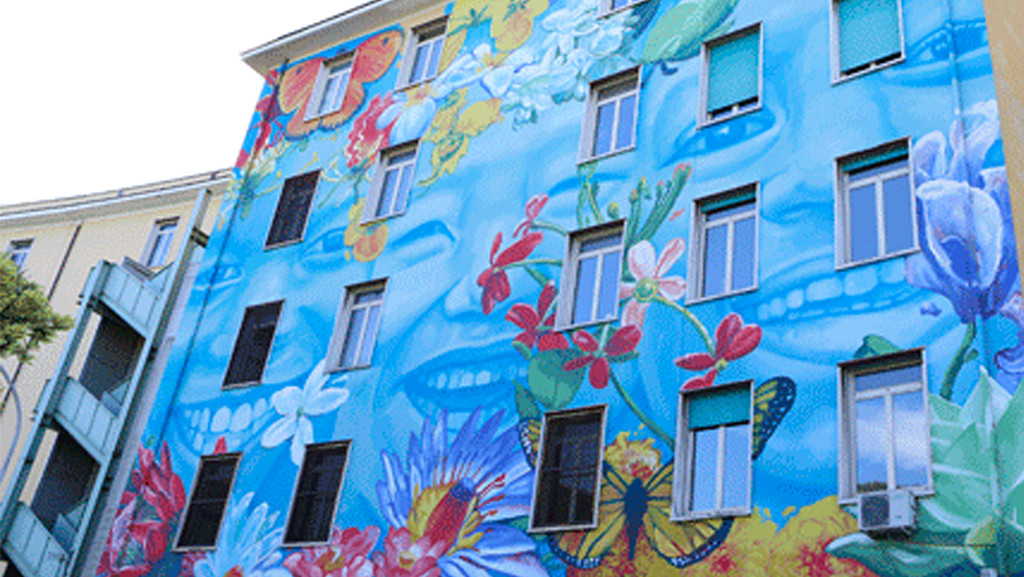
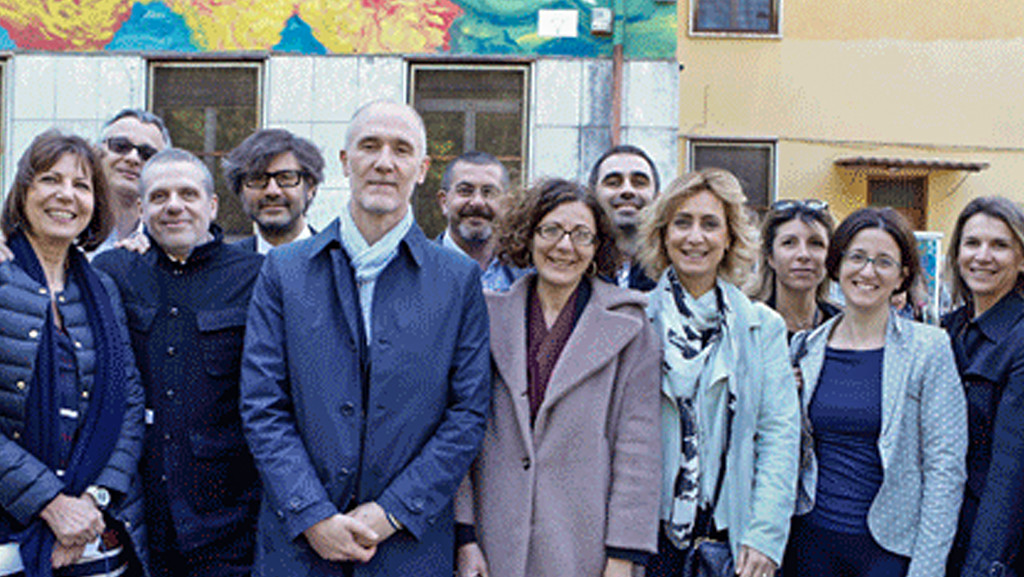
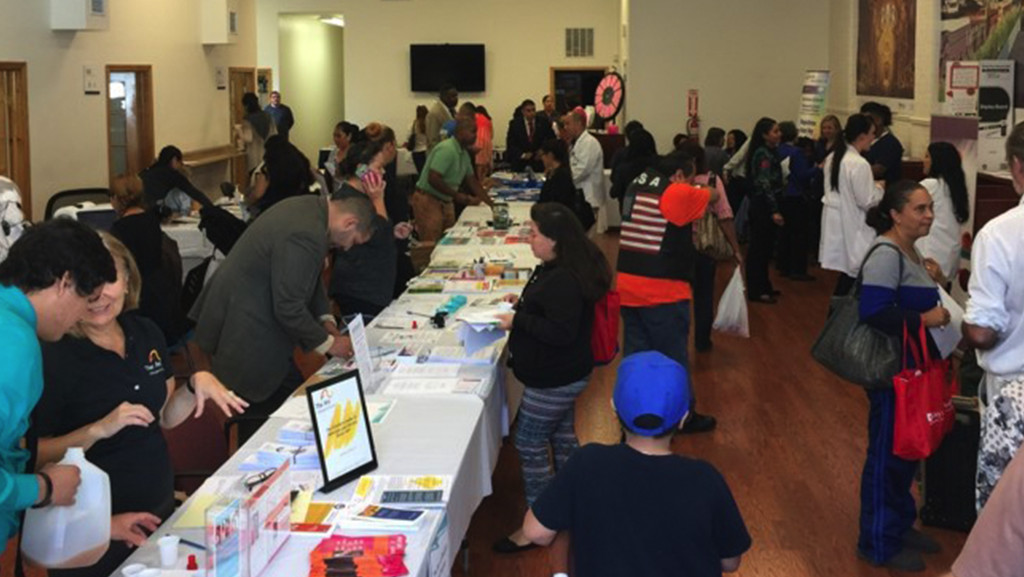
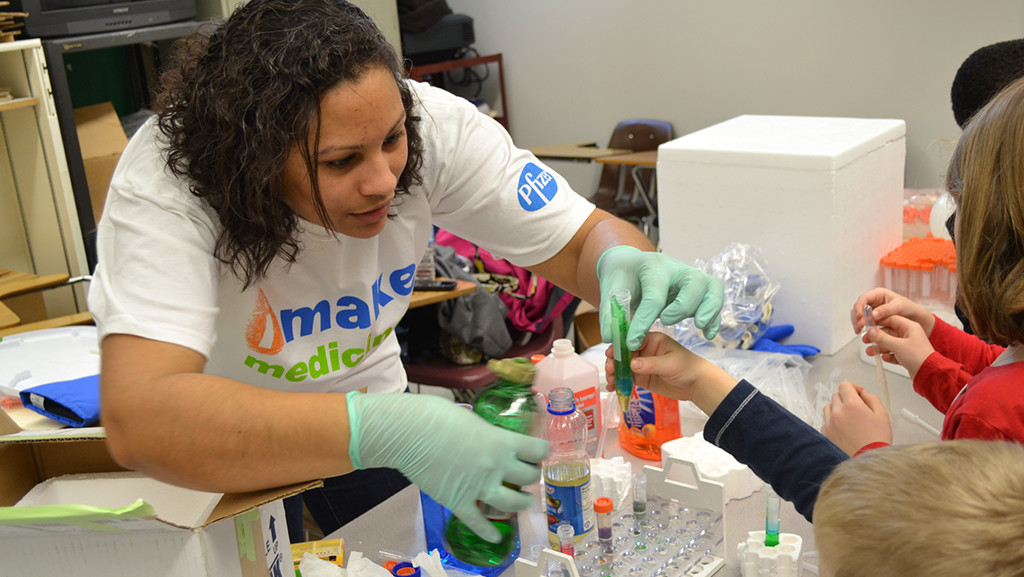
- In 2016, the Disability CRG at Pfizer's Andover, Mass. site piloted a program with local high schools to bring students with intellectual and developmental disabilities to work in part-time jobs alongside Pfizer colleagues.
- The Latino CRGs hosted community health fairs in Latino communities that featured free health screenings and educational sessions.
- Several CRGs gave science, technology, engineering and mathematics (STEM) informational sessions to students in their communities.
- The Italy CRG commissioned an artist to paint a mural celebrating diversity on a building.
The 2016 Hero Awards: Showcasing Employee Impact in Emerging Markets
The Hero Awards is Pfizer's internal, global awards program that honors colleagues who embody an entrepreneurial spirit and who go above and beyond to bring innovative ideas to life. This year’s awards generated more than 100 submissions that showed the true breadth of how we are accelerating patient impact across emerging markets.
- We are inspired by all of our submissions that underscore how Pfizer is making a meaningful impact in emerging markets. Some examples of our top 2016 submissions include:
- Project ECHO – Effort to Demonstrate and Resolve Real World Access Challenges in Indian Breast Cancer Treatment Landscape: Project ECHO addresses a critical unmet need to elevate awareness of breast cancer screening and early diagnosis in India. Through Project ECHO, Pfizer partnered with NGOs (non-governmental organizations) to conduct awareness and screening camps in Madhya Pradesh, Andhra Pradesh, Assam and Chhattisgarh.
- Adding Prevenar 13® to the National Immunization Program (NIP) in Iraq and Lebanon: Despite a challenging environment in Iraq and Lebanon, the Pfizer vaccines team challenged the status quo and utilized all cross-functional Pfizer capabilities to ensure children in these areas will have access to Prevenar 13 on its National Immunization Program (NIP).
- Saudi Arabia “Hemophilia Home Care” Project: Pfizer launched the “Hemophilia Home Care” project, which provides clinical care for hemophilia patients in their homes by offering visits with trained nurses. These nurses distribute treatment to patients, while also training patients and caregivers on how to administer the medication. To implement the program, the Pfizer hemophilia team worked closely with hematologists and home therapy advisers to ensure hemophilia patients adhered to prophylaxis treatment protocol.
Ensuring the Safety of Our Colleagues
At Pfizer, we have a corporate imperative to protect our employees’ health and safety, the environment and the communities in which we operate. We leverage our OWNIT! Culture as we strive toward a workplace free of injury and illness. We have developed an Environment, Health and Safety (EHS) onboarding process that accelerates the integration of new companies into Pfizer. This process helps ensure long-term sustained safety improvements and a healthy, resilient and high-performing workforce. In 2016, our EHS integration activities were focused on our newest employees from Hospira, Inc., Medivation, Inc. and Anacor Pharmaceuticals, Inc.
